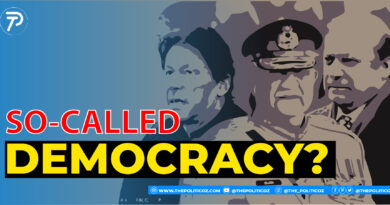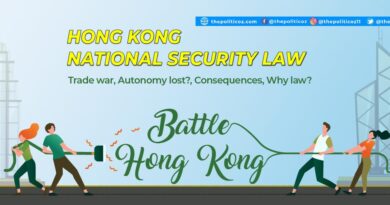Democracy in Pakistan: A Failed Experiment?
Introduction
A nation established on a voyage of democratic ideals in the heart of South Asia, where the echoes of history resound through bustling bazaars and modern cityscapes. Pakistan, a state built on its founders’ ambitions, is grappling with a profound question: Has democracy been a light of hope blazing its way or a flickering flame that threatens to extinguish? The article delves into the various layers that constitute “Democracy in Pakistan: A Failed Experiment?” as we navigate the maze of its political landscape.
The idea of democracy has engraved its mark on Pakistan’s collective psyche with each election, debate, and the pulse of a nation that pulses with zeal. The path to democratic administration, however, has not been without hairpin turns and steep ascents. We are on the quest to determine whether the story of democracy in Pakistan is one of success or one that is still developing, fraught with complexities and ambiguities, as we delve into historical archives and deconstruct current challenges.
Also read: PAKISTAN ARMY ACT AMENDMENT: A THREAT TO FREEDOM OF EXPRESSION
The Dawn of Democracy in Pakistan
Historical Roots and Struggles
The birth of democracy in Pakistan may be traced back to 1947, when the subcontinent underwent a seismic change, giving birth to the sovereign states of India and Pakistan. The prospect of democratic rule sparked optimism in the hearts of millions as the Union Jack was lowered and the flags of newly constituted states were unfurled.
However, Pakistan’s early years were far from an idyllic democratic journey. The scars of partition, cultural instability, and a struggle to define its identity remained. In the midst of these difficulties, the young democracy was faced with the monumental burden of ensuring stable governance and inclusive representation.
Constitutional Developments
Pakistan adopted its first constitution in 1956, taking the initial steps toward cementing its democratic system. The aim of the document was to create the framework for a democratic republic, describing the ideals that would determine the country’s political landscape. This was a watershed moment in Pakistan’s attempt to develop a governing system that would appeal to its varied population.
However, the journey was not without difficulty. The 1960s saw the first signs of military engagement in politics, casting a shadow over the nascent democratic experiment. The suspension of the constitution in 1969 marked a departure from democratic principles, putting the country into an uncertain period.
The passage of a new constitution in 1973 provided a ray of optimism by enshrining the ideas of federalism, separation of powers, and fundamental rights. This was a rekindling of the democratic flame, promising a system that would protect the people’s rights and ambitions.
However, the following decades witnessed a sway between democratic administration and military control. Civilian leadership was frequently followed by coups and authoritarian control. The delicate balance of democracy and military power became a distinguishing feature of Pakistan’s political environment.
Looking back in time, the birth of democracy in Pakistan appears to be a story of aspiration, hardship, and persistence. It is the story of a nation’s unwavering quest of self-government, despite the echoes of partition and the difficulties of nation-building. The path toward a stable and mature democracy would be difficult, laying the stage for a story that continues to unfold to this day.
Also read: THE PUTIN FACTOR: UNRAVELING THE COMPLEXITIES OF THE RUSSIA-UKRAINE WAR
Democracy’s Future: Failed Experiment or Evolving Process?
Historical Context:
Military incursions, weak civilian institutions, and a lack of political stability have characterized Pakistan’s history. The military has dominated the political landscape of the country, frequently gaining power through coups and exerting influence behind the scenes even during civilian governments. This historical context raises serious concerns about the breadth and validity of Pakistan’s democratic experiment.
Civil-Military Cooperation:
The mismatch in civil-military ties is one of the primary elements contributing to Pakistan’s perceived failure of democracy. Military interventions have frequently disturbed the democratic process, resulting in periods of authoritarian government and weakening the establishment of robust democratic institutions. The military’s participation in politics has frequently curtailed the authority of elected governments, weakening democratic governance norms.
Weaknesses in the Institutions:
Pakistan’s democratic institutions have struggled to build and maintain their authority. The judiciary, for example, has experienced difficulties in expressing its independence and providing impartial justice. Corruption in bureaucratic and political circles has eroded democracy’s underpinnings even further, weakening public trust in the system.
Religious and ethnic divisions:
Pakistan’s ethnic and religious diversity has also created substantial hurdles to the democratic process. Regional imbalances and tensions between diverse ethnic and religious groups have resulted in instability and violence, frequently impairing democratic institutions’ coherent functioning. These schisms have made reaching consensus and inclusive governance difficult, impeding the country’s democratic progress.
Electoral Fraud and Political Corruption:
Elections, which are the foundation of democratic governance, have been tarnished by claims of cheating and manipulation. Political parties have been accused of unethical techniques such as voter intimidation and bribery in order to gain power. This has contributed to a perception of a tainted election system, undermining the legitimacy of elected governments and weakening the democratic framework as a whole.
The Media and Free Expression:
While Pakistan boasts a diverse media environment, press freedom has been frequently restricted through censorship, threats, and attacks on journalists. A strong democracy depends on a free and independent press to hold those in power responsible. Restriction of media freedom can stifle information flow and public conversation, hurting the democratic process.
Conclusion
Democracy is not a static experiment that can be regarded as a clear success or failure in Pakistan’s political scene. It is a blank canvas on which the country continues to write its hopes, difficulties, and goals. While the path to a mature and healthy democracy is not without challenges, it is also lighted by the tenacity of a people who envisage a future moulded by the principles of representation, accountability, and fairness.
Pakistan’s democratic journey will be characterized not just by its past, but also by the collective determination to construct a path that reflects the aspirations of its diverse and vibrant community. The argument over the future of democracy is more than a question of success or failure; it reflects a nation’s unflinching commitment to creating its destiny through an ever-evolving, dynamic process.




